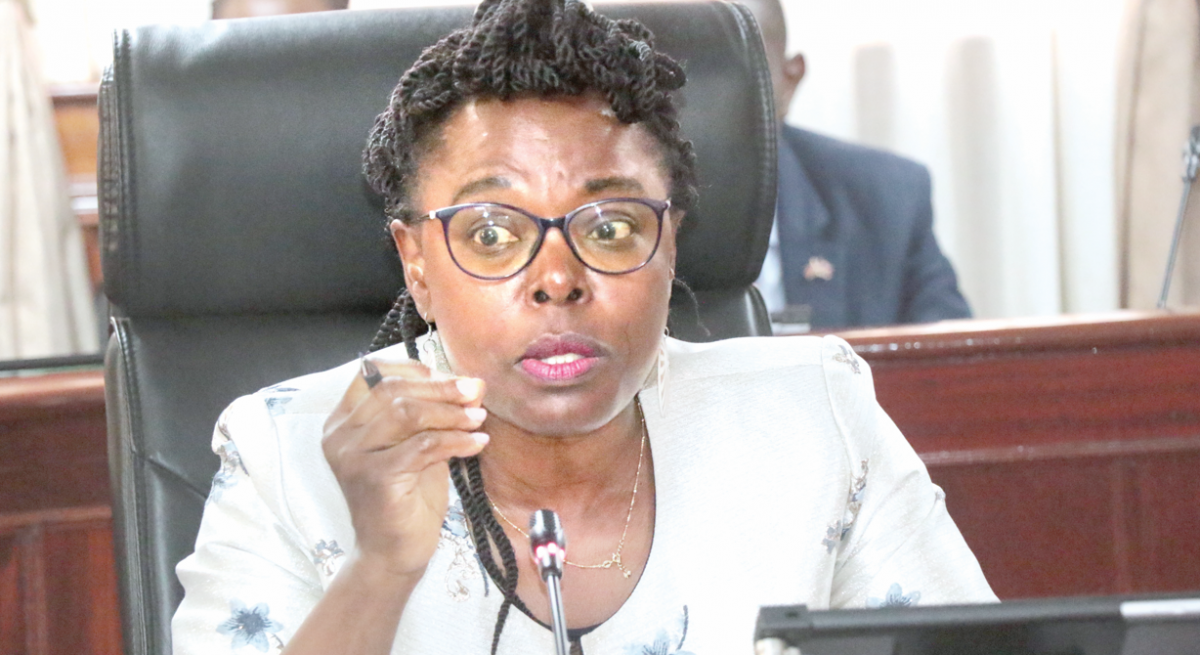Budget approvals to take fewer minutes if automation effected

Approval of budgets for National and County Governments will be within minutes of application if an automation project Controller of Budget (COB) Dr Margaret Nyakang’o is implemented.
Nyakang’o contends that implementation of the automation of budget withdrawals will reduce the time lost using manual means and reduce paperwork.
Yesterday, while appearing before the Senate Finance and Budget Committee on the Budget Policy Statement (BPS), Nyakang’o charged that her office will not be able to implement the ambitious project because the funds have not been allocated for the project.
“We have already automated the system for the National government. We had requested funds to enable us to implement automation for the budget withdrawals for the counties but we have not been allocated funds,” said Nyakang’o.
Nyakang’o said automation of the systems will speed up requisitions, adding that the counties should standardise the requirements if the system is to work seamlessly.
“We need to first standardize requirements and allow each County to create its own system that is integrated with the COB’s system.”
Automation of systems
Nyakang’o told the committee that they have requested Sh50 million from the National Treasury for the automation of systems and development and Deployment of the Controller of Budget Management Information System (COBMIS) and Exchequer Requisitions for efficiency.
However, the National Treasury has not allocated any funds towards the project.
The COB is an independent office established under Article 228 of the Constitution with the core mandate being to oversee implementation of the budgets of the National and County Governments by authorizing the withdrawal from public funds.
Nyakang’o told the Ali Roba (Mandera) led committee that during the financial year 2025/26 budget preparation, the Office of Controller of Budget (OCOB) tabled a budget of Sh1.6 billion to the Public Administration and International Relations (PAIR) sector.
Budget Policy Statement
However, the figure was subsequently revised downwards to Sh777.5million as per the Budget Policy Statement 2025; a move Nyakang’o says will hinder her office from carrying out her mandate effectively and efficiently.
For instance, Nyakang’o said that since the establishment of the OCOB after the promulgation of the 2010 Constitution, the staff has not had any capacity training, no foreign travel and no promotions.
Instead, Nyakang’o is rooting for an additional allocation of Sh182million to enable her office to recruit an extra officer in each of the 47 Counties to make them two.
Nyakang’o told the committee that the staff are demoralized because they have never had any capacity-building training; they have not had career progression and cannot even go for annual leave because no work will take place.
“This is my sixth year and I have never had any foreign travel. We have poor staffing at the Counties. We only have one officer per county who are totally demoralized and have never gone for training nor promoted for more than 10 years,” said Nyakang’o.
She however, clarified that her office in conjunction with the Public Service Commission (PSC) and the Salaries and Remuneration Commission (SRC) has already drafted the career progression guidelines that will see staff get promotions based on merit, years of service and performance.
Yesterday, Nyakang’o further told the committee currently, pending bills at the national and county governments stands at Sh524.07billion and Sh180.52 billion respectively.
According to Nyakang’o, in the 2025 BPS, the government has underscored the need for a plan to pay all pending bills at the national and county government levels.
In her opinion, the policy will mitigate the losses realized by those businesses that have provided goods and services to the government in the past.
“The Controller of Budget has continued to enforce compliance among county governments by requiring all counties to submit payment plans for pending bills at the beginning of every financial year in line with the National Treasury circular. There is also a need for constant monitoring and reporting on the status of the pending bill,” said Nyakang’o.
She further disclosed that the Controller of Budget has continued to monitor and report on the proportion of total revenues allocated to personnel emoluments by the national and county governments for compliance with relevant laws and regulations. To ensure a realistic budget that will facilitate the implementation of government programs and policies, there is a need for broad-based consultations among the relevant parties involved in the process.
This approach will ensure important programs are prioritized for funding whilst those with less immediate impact on society are considered afterward.
Senator Richard Onyonka (Kisii) supported calls for additional allocation to the budgets of the Offices of Controller of Budget and the Auditor General in recognition of their critical roles in ensuring prudent expenditure of public funds.










